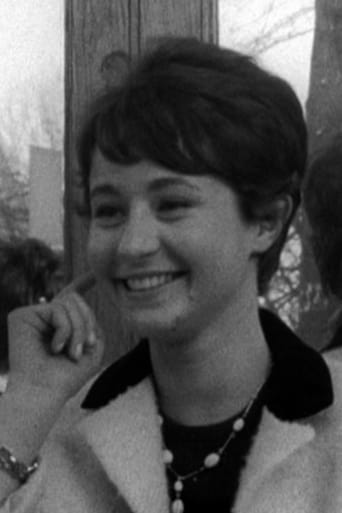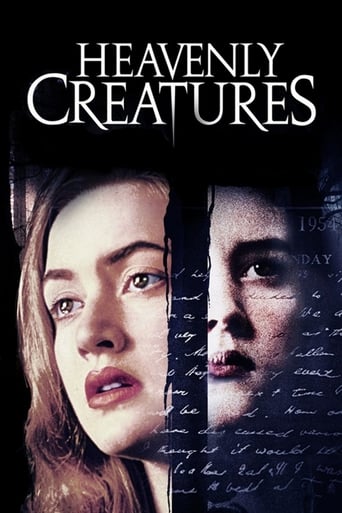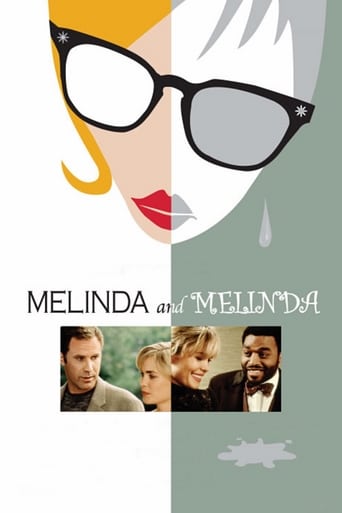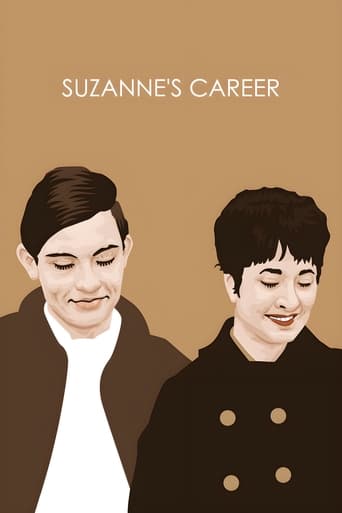
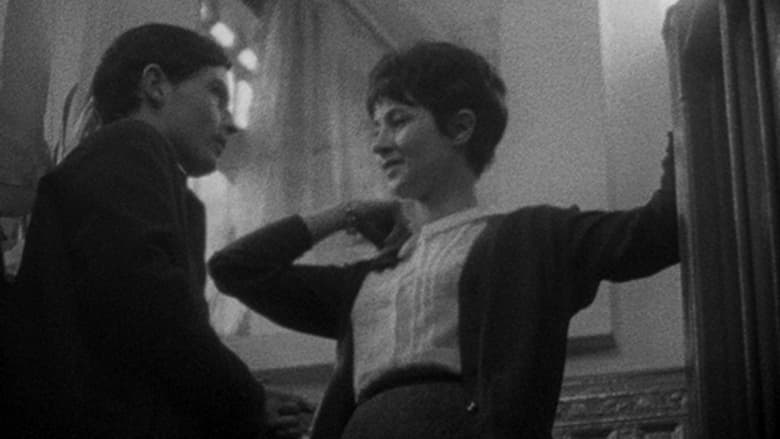
Suzanne’s Career (1963)
In the second of Rohmer's moral tales, he examines the relationship between two friends and a girl who at first appears easily exploited. It is a complex tale of feelings and misconceptions, acted out within the head of the main character, as part of Rohmer's attempt to more easily simulate the mindscape quality of literature within a film.
Watch Trailer
Cast
Similar titles


Reviews
Self-important, over-dramatic, uninspired.
This is a small, humorous movie in some ways, but it has a huge heart. What a nice experience.
I think this is a new genre that they're all sort of working their way through it and haven't got all the kinks worked out yet but it's a genre that works for me.
Easily the biggest piece of Right wing non sense propaganda I ever saw.
This is the second film in French director Eric Rohmer's "Six Moral Tales" film series. I'm watching the films in order, and so far I've only gotten to the first two ("The Bakery Girl of Monceau" and this one), and, out of those two films, this one is probably the most bland.Trust me, there's plenty of positive things to be said about "Suzanne's Career". There's some pretty good characters, a nice love story, and some really interesting and artistic filmmaking/storytelling techniques. However, the film is, overall, kind of bland and, at times, even quite boring! For an only 55 minute film, it went by pretty slow, even if there were quite a few neat things about it along the way.Overall, the film is recommended if you're planning on watching all six of the "Six Moral Tales" film series. Otherwise, there's no real reason to watch this unless you're a big fan of French/romantic cinema.
"Suzanne's Career" is a rather slow moving story about three friends. One is a bit of a Romeo and is focused on his current conquest, Suzanne. The other is a friend who narrates the film. His role is odd--he just hangs around the two and acts a bit like a chaperon--a chaperon who disappears when the pair want to sleep together. Eventually, the simple girl, Suzanne, turns out to be a bit more clever than either guy had expected and soon begins to make eyes at the chaperon. What is going on here? See the film yourself if you'd like to know.Watching "Suzanne's Career" reminds me of a home movie--a very good home movie, but a home movie nonetheless. It appears to have been made using an 8mm camera, is quite grainy, have occasionally sloppy edits and has no titles or introduction. The camera also appears to have been hand-held at times and is, occasionally, a bit jerky. Because of all these factors and the non-professional style of the acting, it's not very easy to take this film seriously. The way I see it, it's a way for Eric Rohmer fans to see his early works in order to see how much he improved and evolved over the next few decades. And because of all this, it's NOT a movie for the casual viewer--more for the die-hard Rohmer fans. And, because I assume this was only made for Rohmer and his New Wave buddies, I really don't think it's possible to score this one.By the way, twice in the film the line "Girls like to be forced" was repeated. How very progressive!!
This is the second of the moral tales, but it's the last one I had left to see. I probably would have liked it better if I had seen it earlier as it covers a lot of the same areas as the later films but it's naturally less polished. It's clearly a very low budget film and the visuals are among Rohmer's most nondescript. Also, despite it's brevity it drags a bit in places. Still, in spite of these flaws it's a worthwhile addition to the Rohmer canon.The film itself is about two male college students. Guillame is the leader here. He is also a real jerk, similar to the stereotypical frat boy today. This is the type of person who comes from a privileged background but is still quite ignorant in spite of his advantages. Since he is clearly lacking intelligence but seems affable enough, this type of guy gets treated well by people who don't realize that he has just enough cunning to take advantage of their kindness and screw them over. So naturally he uses and abuses everyone around him. This includes his pathetic, spineless sidekick, Bertrand, and their mutual love interest/dumping ground Suzanne. The film is narrated by Bertrand who is something of a non-entity.Suzanne is a decent looking girl with a steady job but she doesn't have enough money to attend college full time. Because she is not beautiful and also because of the aforementioned lack of funds she allows herself to be used by Bertrand and Guillame. It's clear she cares more about them than they do about her and she ends up wasting her hard earned money on the boys.The twist here is that eventually Suzanne gets tired of the boys and moves on to better things while they stay the same. Despite coming from a lower social standing she ends equal to them and thus exposes their aimless apathy. Of course, Suzanne is not perfect either. The film's title suggests that her goals from the beginning might have been different than they seemed.
Part two of Eric Rohmer's ongoing series of stories, this one concerns a love triangle of sorts. Bertrand and Guillaume meet Suzanne, a young, plain-looking woman. Bertrand decides not to pursue her, but Guillaume does, and once he's made her his, he pushes her aside. Angered, Suzanne flirts with Bertrand and asks him out in order to make Guillaume jealous. What takes place is a series of events in which both young men take advantage of Suzanne who is somewhat of a mousy character throughout part of Rohmer's plot, but who takes charge in the short movie's later half. SUZANNE'S CAREER also concerns a constant in Rohmer's "Six Moral Tales" theme: the man who is attracted to a woman he does not want, and idealizes another woman he does want (or already is engaged/married to). Normally the spurned woman is not to the type of the protagonist's liking, and the one he is in love with, is. Sophie, in this story, represents that ideal for Bertrand even when to the viewer she appears rather dull and Suzanne has shown a greater personality than originally displayed. Not as talky as LE GENOU DE CLAIRE (indeed, no movie can be!) this one has a little more wit to it, even when it's a little flat here and there.
